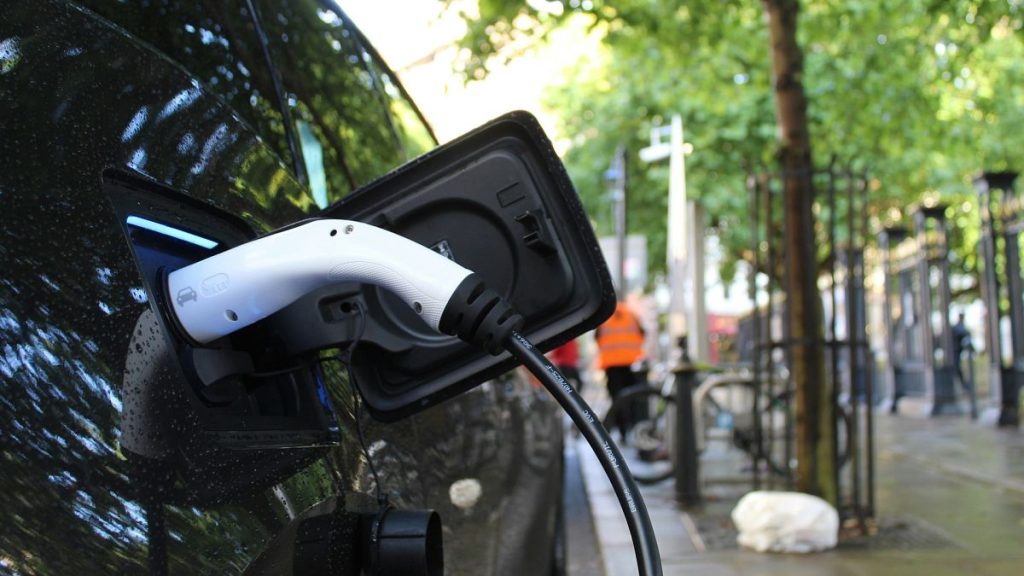Almost every car on the road should be electric and at least half of all homes should be fitted with heat pumps by 2040, according to the UK’s independent climate advisors.
In its seventh carbon budget, the Climate Change Committee (CCC) proposes a transformative shift in the way the UK heats its homes, as well as Britons’ travel and food habits, to meet the country’s legally binding net zero goals.
Achieving climate neutrality by 2050 will require major, but realistic, lifestyle changes that experts say are necessary to safeguard the future of the planet.
Here’s what this new report means for the UK and its efforts to reach net zero emissions.
How many UK homes have heat pumps?
UK home heating accounts for nearly 20 per cent of the country’s emissions, according to the Department for Energy Security and Net Zero.
Methods to reduce that figure have been a hard sell.
In countries where electricity prices are still much higher than for gas and oil, few people have switched to more efficient and environmentally friendly heat pumps, which take energy from the air, ground or water and transform it into heat or cool air.
This includes the UK, which only has around 412 heat pumps per 100,000 people compared to a European average of 3,068 heat pumps per 100,000 people, according to Air Source Heat Pumps London. That ranks itlowest in Europe.
A large reason why is cost. The average installation cost for an air-source heat pump is about £13,000 (€15,600), significantly higher than the average £2,600 (€3,150) for a gas boiler, according to data pulled from the government’s Boiler Upgrade Scheme.
Britons are beginning to buy into heat pumps
Thanks to government campaigns, public attitudes toward heat pumps are starting to shift.
The UK has employed the Behavioural Insights Team (BIT), a global research consultancy, to push back against common misinformation, such as heat pumps not working in the cold or not being suitable for older buildings.
“We want to help people get a heat pump as families can save around £100 (€121) a year compared to a gas boiler by using a smart tariff effectively,” the Department for Energy Security and Net Zero said in a statement earlier this year.
Last year saw a surge in heat pumps being installed in the UK – nearly 60,000 units. Still, the total falls short of the 450,000 the CCC estimates will be needed by 2030.
Some experts say the cost of inaction outweighs the convenience of the status quo.
“Arguments that climate action is too costly are dangerous, short-sighted and disproportionately harm poorer people,” says Dr Friederike Otto, senior lecturer at the Centre for Environmental Policy and co-lead of World Weather Attribution, Imperial College London.
“If governments don’t cut emissions, both now and in the future, our children will live in an increasingly hostile climate and even more unequal society.”
The UK is finding it easier to embrace EVs
Electric vehicles have been a different story, however.
In 2024, approximately381,970 EVs were sold in the UK, a 21.4 per cent growth year on year.
Falling battery costs have made them more affordable. The CCC expects the price of electric and petrol or diesel cars to be about equal sometime between 2026 and 2028.
Meanwhile, government incentives and expanded charging infrastructure are encouraging more drivers to make the switch.
But for 80 per cent of all cars on UK roads to be electric by 2040 to meet emissions targets, the country will need to ramp up EV adoption, expand the charging network and ensure a steady supply of affordable vehicles, the committee notes.
How else must consumer habits change?
Transitioning to a low-carbon economy will require more than just cleaner transport and home heating. The way Britons eat, drink and travel will also have to change.
The CCC’s projections suggest a significant reduction in meat and dairy consumption, leading to a 27 per cent decline in sheep and cattle numbers by 2040.
As consumption habits change, woodland space should expand. The report calls for woodland coverage to increase from 13 to 16 per cent to support natural carbon capture.
The CCC also says that flights need to become more expensive to reflect environmental costs. That casts a shadow over UK airport expansion plans, according to Celeste Hicks, policy manager for the Aviation Environment Federation (AEF).
“Based on the evidence presented, there’s simply no justifiable rationale for supporting airport expansion,” she said in a statement. The government is due to decide on the plan for a second runway at Gatwick Airport tomorrow (27 February).
What is the Climate Change Committee?
Under UK law, the CCC provides independent guidance on the country’s allowable emissions over five-year periods, known as carbon budgets, and offers strategies to achieve these targets.
While the CCC operates independently, its recommendations are typically adopted by the UK government and enshrined in law. This has helped the UK consistently surpass its emissions targets.
Since 1990, the UK has cut its greenhouse gas emissions by more than 50 per cent. The latest carbon budget calls for a further 13 per cent reduction from 1990 levels to keep the country on track for its net zero goals.

